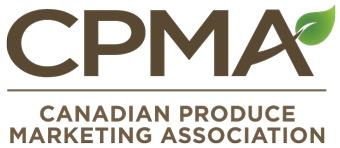Tracking Industry Customs Issues
Importation delays and high costs related to customs inspections can severely affect the sale of produce in Canada. That’s why CPMA works with members to address customs problems they encounter—whether systemic issues that make importation more difficult, or one-off critical problems affecting a particular load.
CPMA is a member of the Canada Border Services Agency’s (CBSA) Border Commercial Consultative Committee (BCCC) and many of its sub-committees—CBSA’s main industry forum for consultation on customs policy. Through this forum, CPMA ensures that the produce industry’s voice is heard and taken into account on customs matters.
CPMA continues to work with CBSA to address delays, inspection costs, and communication gaps, emphasizing the specific needs of highly perishable fresh produce.
The CPMA Customs Working Group supports members’ priorities in moving produce efficiently across the border.
Member Input Needed:
CPMA encourages members to share data on diverted loads, inspection delays, and costs by contacting Shannon Sommerauer, Director of Government Relations.
All information is confidential and shared with CBSA only in aggregate form and will not include company names or details on specific incidents.
Need help navigating import requirements?
CPMA’s Doing Business in Canada tool outlines key federal requirements for importing fresh fruits and vegetables and links directly to CFIA, CBSA, and Health Canada resources.
CBSA Assessment and Revenue Management (CARM)
Industry Best Practices – CBSA Import Requirements and Produce Examinations (Highway Mode)
As a result of ongoing concerns brought forward by the produce industry regarding damage to produce during inspections and off-loading, the Canadian Produce Marketing Association, industry members and the Canada Border Services Agency (CBSA) collaborated to develop Industry Best Practices – CBSA Import Requirements and Produce Examinations (Highway Mode) in order to further improve the importing process for both industry and the CBSA. A similar document will be used internally by CBSA to ensure proper handling of produce during examinations at border crossings
Customs Programs
The Canada Border Services Agency’s (CBSA) Single Window Initiative (SIW) streamlines commercial import data sharing between the Government of Canada and the import community, balancing departmental needs with efficient business processes. SWI involves nine federal departments representing 38 government programs.
A joint Canada–U.S. initiative involving CBSA and U.S. Customs and Border Protection (CBP), FAST expedites movement of pre-approved, low-risk goods and verifies trade compliance away from the border.
Partners In Protection enlists private industry’s cooperation to enhance border security, combat organized crime and terrorism, and promote customs compliance awareness.
A voluntary government-business initiative improving global supply chain and U.S. border security. Participating companies help ensure a more secure, efficient trade environment.
NEXUS is designed to speed up border crossings into Canada and the United States (U.S.) for low-risk, pre-approved travellers. It is jointly run by the Canada Border Services Agency (CBSA) and the U.S. Customs and Border Protection (CBP).
To become a member:
- Submit an application and complete registration.
- Meet eligibility criteria.
- Be admissible in both countries.
- Pass risk assessments by Canada and the U.S.
Provides electronic pre-arrival reporting for carriers, freight forwarders, and warehouse operators.
CBSA uses data from Advance Commercial Information (ACI) and eManifest to identify risks before shipments arrive.
A searchable CFIA database that walks importers through applicable regulations and import requirements for specific commodities.
National Import Service Centres process import documentation submitted electronically or by fax. CFIA staff review data and communicate release decisions via CBSA or directly to importers.
A trusted-trader program for low-risk, pre-approved importers, carriers, and drivers.
CSA participants benefit from streamlined processing for eligible goods transported in the highway mode.
